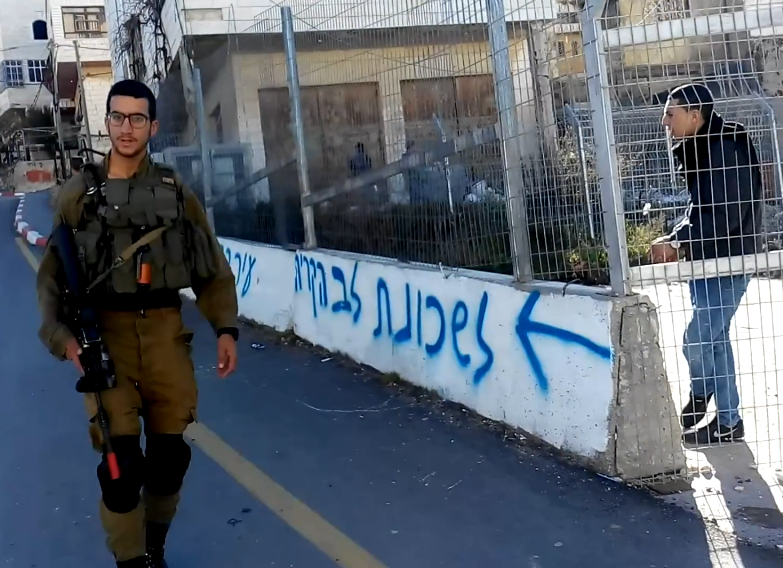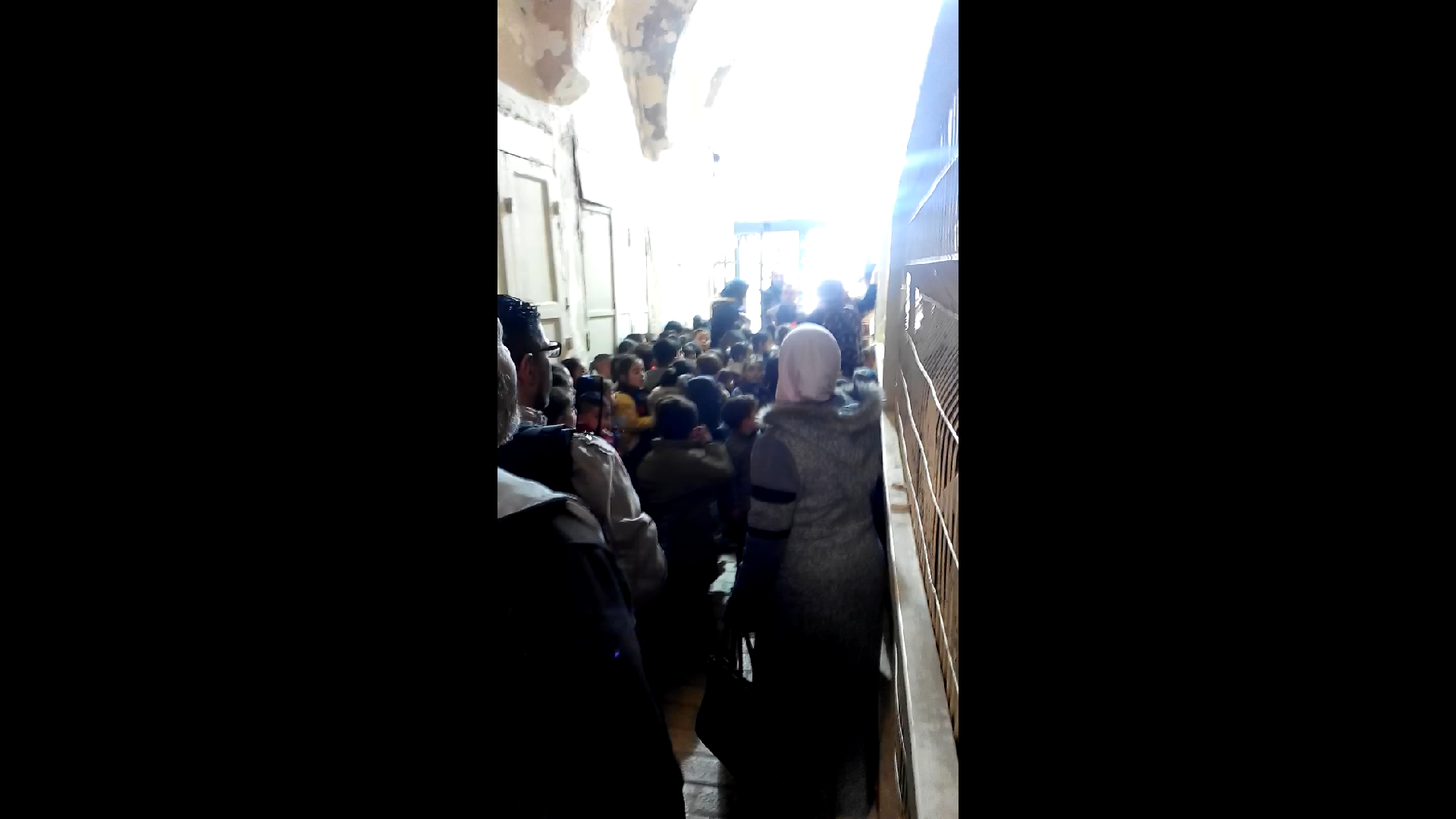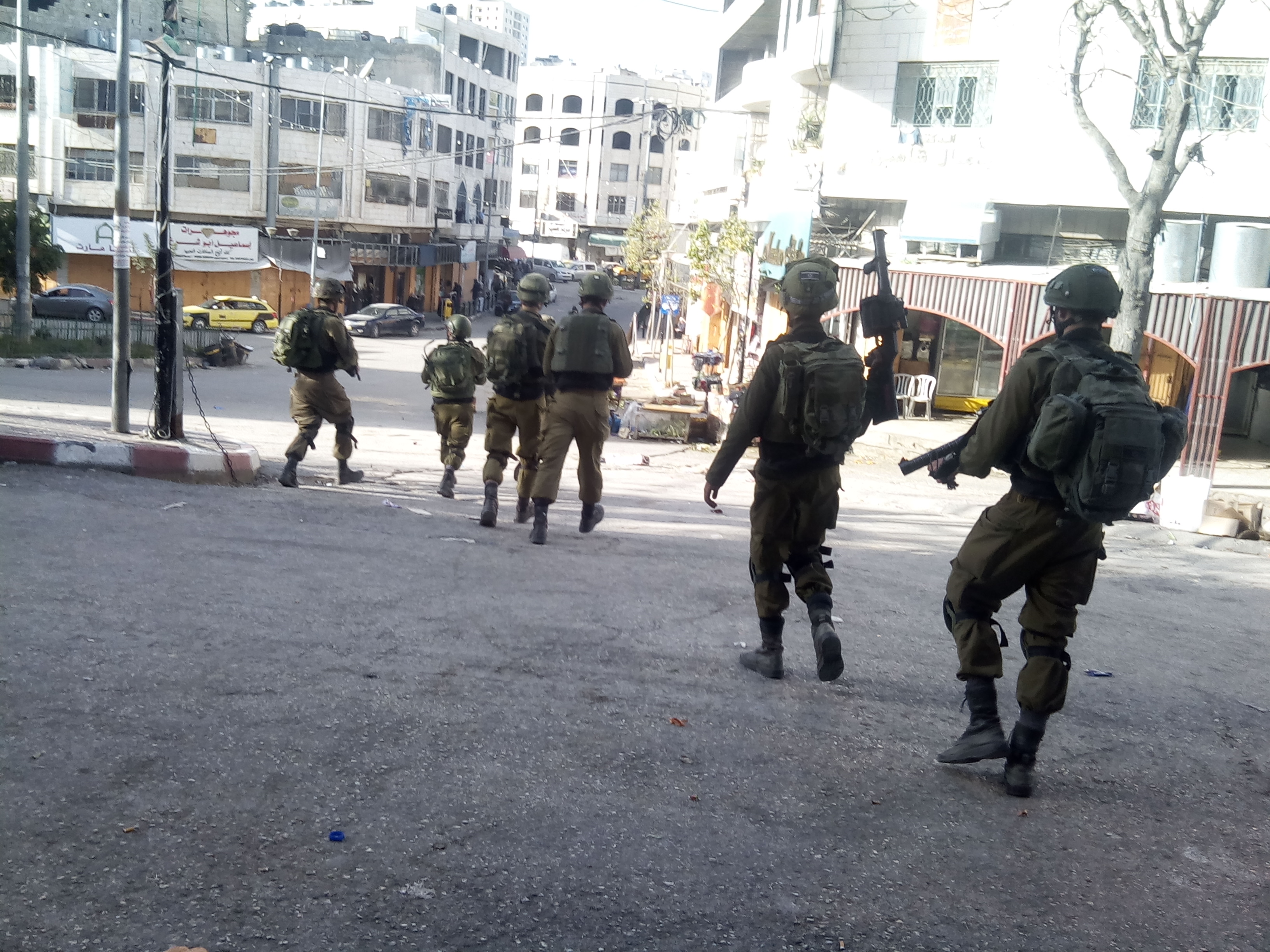Tag: Hebron
-
Young boy beaten, detained and extorted in Al Khalil by IDF – 19/3/19
March 19, 2019 | International Solidarity Movement, Al-Khalil team | Salaymeh check point, occupied Palestine This teenager got arrested today after him and his little brother got attacked by the Israeli police and an illegal settler in the streets of Hebron. His testimony is as follows: ‘”This morning, my sister came to me and told…
-
Children denied entry to Mosque – Hebron – 18.03.2019
March 18, 2019 | International Solidarity Movement, Al-Khalil team | Al-Khalil (Hebron), occupied Palestine A group of small school children are stopped by the Israeli Defense forces for over an hour at an illegal checkpoint on their way to a school field trip to their local Mosque, in Al-Khalil. Tourists and other Palestinians alike, also…
-
Invasion and attack in Al Khalil (Hebron) 3/13/19
March 13, 2019 | International Solidarity Movement, Al-Khalil team | Al-Khalil (Hebron), occupied Palestine Israeli Defense Forces storm into Al Khalil (Hebron), and attack and arrest journalists and internationals before bombarding the city with stun grenades, tear gas, rubber coated steel bullets and live ammunition.



